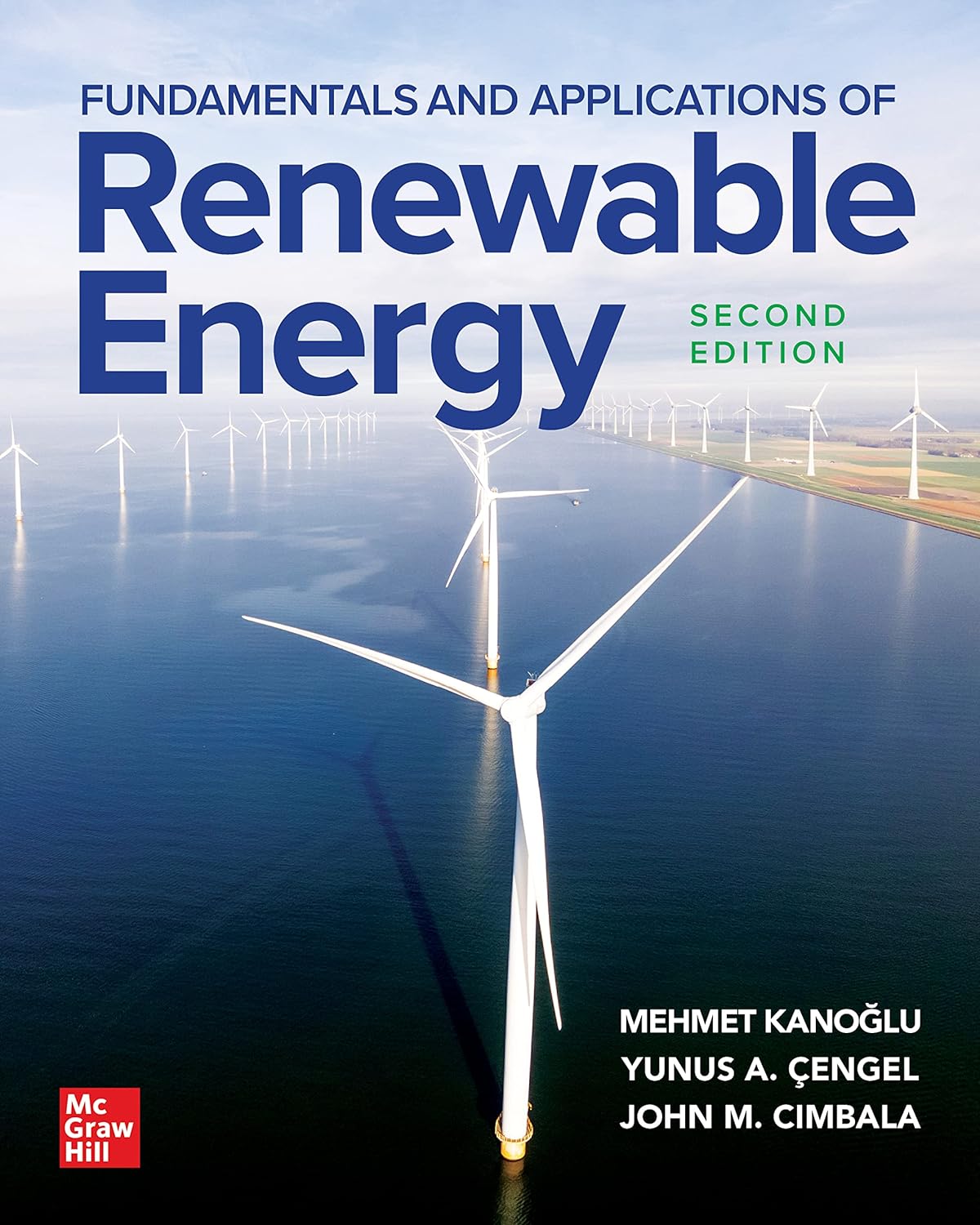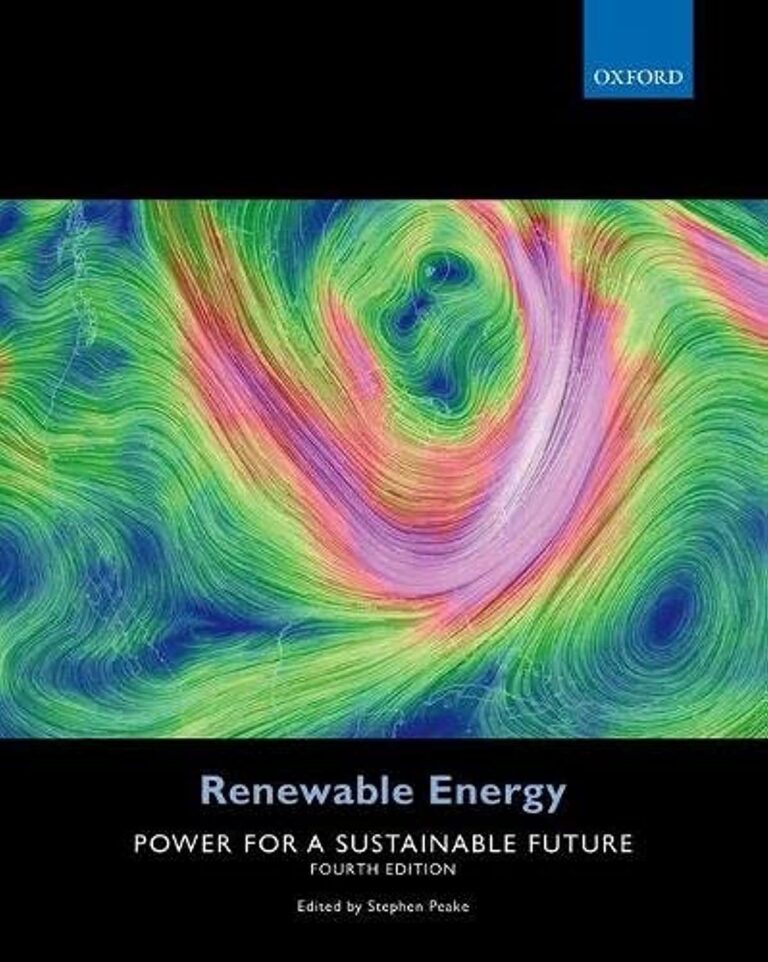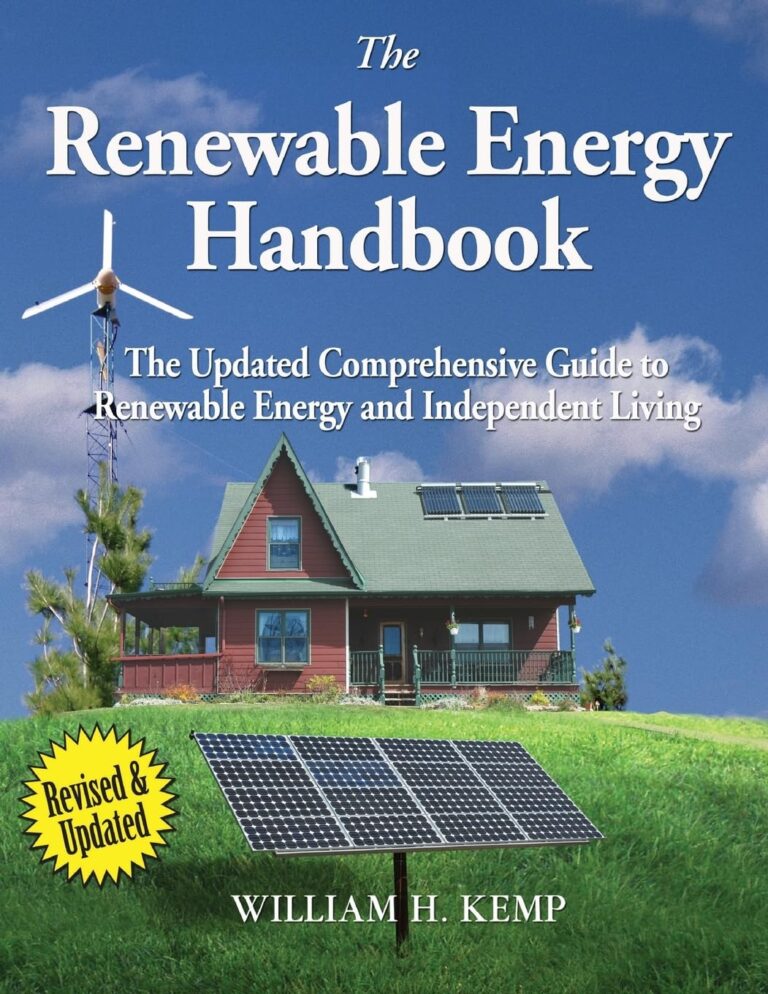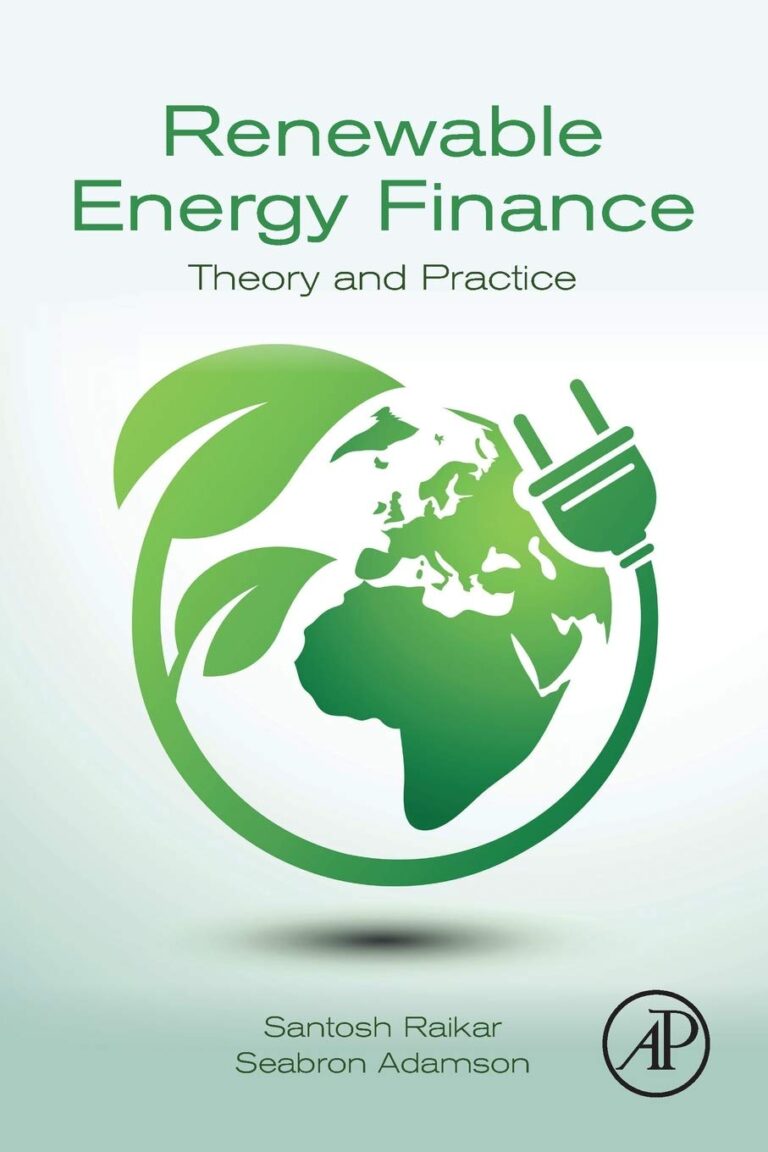Renewable Energy 21st Century
Discover “Fundamentals and Applications of Renewable Energy, Second Edition.” It provides up-to-date insights on sustainable energy, perfect for students and professionals.
You are about to delve into “Fundamentals and Applications of Renewable Energy, Second Edition.” This comprehensive guide provides you with an in-depth understanding of renewable energy technologies and their practical applications. Perfect for both students and professionals, this edition covers the latest advancements in the field, offering you insights into sustainable energy solutions that can shape a greener future. Expect a blend of theoretical knowledge and real-world practices that will equip you with the tools to contribute effectively to the ever-evolving energy sector. Have you ever wondered how in-depth your understanding of renewable energy could become with the right resource? If you’re enthusiastic about sustainable energy solutions, “Fundamentals and Applications of Renewable Energy, Second Edition” might be just the book you need. This comprehensive text delves deeply into various aspects of renewable energy, offering invaluable insights that are both fundamental and practical. Let’s explore this gem in detail and see what makes it an essential addition to your renewable energy library.
Overview
The “Fundamentals and Applications of Renewable Energy, Second Edition” provides a holistic view of the renewable energy landscape. It aims to elucidate the principles and practical applications of sustainable energy sources.
Authors’ Expertise
The credibility of any educational resource greatly depends on its authors. The writers of this textbook are seasoned experts in the field of renewable energy. Their extensive academic and professional backgrounds add significant value to the book, making it a reliable source of information.
Updates in the Second Edition
With its second edition, this book has been updated to reflect the latest advancements in renewable energy technology. These updates make it particularly relevant for current and future applications in this fast-evolving field.
Core Topics Covered
As you dive into this book, you’ll find a wealth of information organized systematically across various essential topics.
Wind Energy
One of the key sections of the book covers wind energy extensively. You’ll be amazed at how much there is to learn about this seemingly straightforward energy source.
History and Development
Understanding the historical context of wind energy can provide you with a broader perspective on its future potential. This portion walks you through the significant milestones in wind energy development.
Modern Technologies
From blade design to turbine efficiency, the book explores the cutting-edge technologies that are making wind energy more viable and efficient today.
Solar Energy
Solar energy is another cornerstone of the renewable energy sector. This section is incredibly detailed and will help you grasp the underlying principles and technologies.
Photovoltaic Systems
The book delves into photovoltaic systems, explaining how solar panels convert sunlight into electricity. This part is particularly enlightening for those interested in solar installations.
Thermal Systems
Solar thermal systems are another area of focus. You’ll learn about various methods of harnessing solar energy to produce heat, ultimately broadening your scope of understanding renewable energy applications.
Biomass Energy
Biomass energy is often overlooked but offers immense potential. This book does an excellent job of explaining its fundamentals and applications.
Types of Biomass
Different sources of biomass are discussed, including agricultural residues, wood, and organic waste. Understanding these sources can open up new avenues for sustainable energy solutions.
Conversion Technologies
The book details various technologies used to convert biomass into usable energy, such as combustion, gasification, and anaerobic digestion.
Hydropower
Hydropower is one of the oldest and most reliable forms of renewable energy. The authors provide a thorough exploration of its advantages and limitations.
Micro-Hydropower Systems
For anyone interested in small-scale applications, the book offers a very insightful section on micro-hydropower systems. These systems can be implemented in remote or rural areas, providing a sustainable energy solution where it’s needed the most.
Large-Scale Projects
The text also covers large-scale hydropower projects, diving into their engineering, environmental impact, and economic feasibility.
Geothermal Energy
Harnessing the earth’s internal heat presents unique challenges and opportunities. This part of the book will guide you through all you need to know about geothermal energy.
Direct Use Applications
From heating buildings to agricultural uses, the authors discuss how geothermal energy can be directly utilized, providing real-world examples for context.
Electricity Generation
This section goes into the technicalities of using geothermal resources for electricity generation, a growing field with considerable potential.
Emerging Technologies
Staying ahead of the curve is crucial in the renewable energy sector. Thus, the book also includes a section on emerging technologies that could shape the future of this field.
Ocean Energy
Energy from the ocean, including tidal and wave energy, is one of the exciting new frontiers. The authors cover the basics as well as more advanced concepts.
Hydrogen and Fuel Cells
Hydrogen energy and fuel cells could revolutionize the way we store and use energy. This book provides a detailed examination of their potential and the challenges that need to be overcome.
Practical Applications
The theory is vital, but practical applications are what make this book stand out. You’ll find numerous real-world examples and case studies throughout the text.
Case Studies
The inclusion of case studies helps to put theory into practice. Whether it’s a wind farm in Denmark or a solar project in California, these examples provide invaluable insights.
Feasibility Studies
Conducting feasibility studies is crucial for any renewable energy project. The book guides you through the various steps involved in assessing the viability of different types of renewable energy projects.
Education Focus
If you’re a student or educator, this book is particularly useful. Its structured approach makes it an excellent textbook for courses in renewable energy or sustainable engineering.
Learning Objectives
Each chapter comes with clear learning objectives, helping you focus on the key points that need to be understood. This feature is particularly useful for academic settings.
End-of-Chapter Questions
To aid in understanding and retention, the book includes questions at the end of each chapter. These are designed to test your knowledge and help you gauge your grasp of the material.
Additional Resources
The book also directs you to additional resources for further study. This includes recommended readings, relevant websites, and notable research papers.
User Feedback
Hearing what other readers have to say can often be enlightening. Luckily, the user’s feedback for this book is overwhelmingly positive.
Student Reviews
Many students have found this book to be an invaluable resource. Its clear explanations and thorough coverage make it a favorite among those studying renewable energy.
Professional Opinions
Professionals in the field also hold this book in high regard. Its practical insights and up-to-date information make it relevant for both academic and professional purposes.
Overall Rating
Most users rate this book highly, often giving it 4-5 stars. The positive reviews often highlight its comprehensive coverage and practical applications and its role as an excellent reference for both newbies and seasoned professionals in the field.
Pros and Cons
Like any resource, there are pros and cons to consider.
| Pros | Cons |
|---|---|
| Comprehensive coverage | Dense content might overwhelm beginners |
| Up-to-date information | Some topics could use even more depth |
| Practical applications and case studies | High price point |
| Written by experts in the field | May require basic knowledge to fully grasp concepts |
Final Thoughts
“Fundamentals and Applications of Renewable Energy, Second Edition” is a comprehensive and highly informative book. It manages to strike a balance between theory and practice, making it a valuable resource for a wide audience. Whether you are a student, educator, or professional, this book provides the insights you need to deepen your understanding of renewable energy.
So, if you are committed to learning more about sustainable energy solutions and staying ahead in this ever-evolving field, give this book a read. Your journey into the world of renewable energy will be much richer for it.
Disclosure: As an Amazon Associate, I earn from qualifying purchases.








